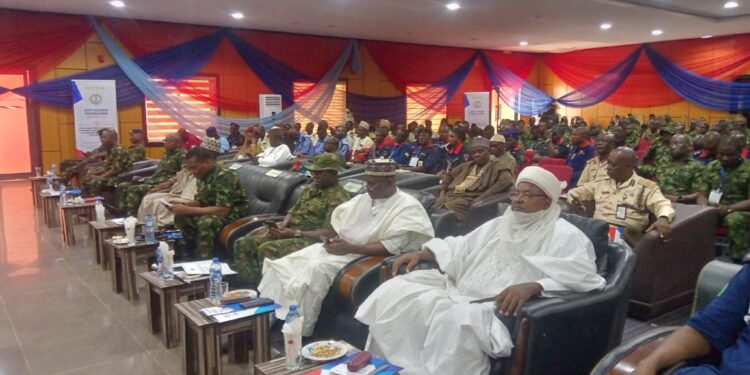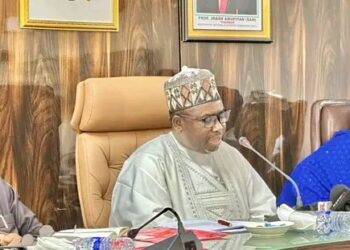Musa made the call on Thursday at a safe school workshop with theme: ” Providing a Secure and Safe Learning Environment for Advancement of National Development” organised by 8 Division of Nigerian Army Sokoto.
He said the Armed Forces of Nigeria will continue to do all within its strength to ensure the protection of children, in collaboration with other security agencies.
He noted that a secured and better environment must be provided for Nigerian children so that they can acquire education without fear of criminals.
In his address, the Chief of Defence Training and Operations Nigerian Army Headquarters, Maj.-Gen. Emeka Onumajuru, said the workshop was in line with President Bola Tinubu’s Renewed Hope programme and Federal Government’s policy on safe, secure and violent-free schools initiative.
Onumajuru noted that the workshop became imperative in view of the incessant attacks on schools across Nigeria since 2014.
He said the event was prepared as a stepdown training with participants to educate others in their formations, educational cycles and departments in order to expand the scope of knowledge and experiences learnt.
According to him, the workshop is aimed at sensitising troops on the rudiments of inter-agency collaboration to protect schools against attacks.
” It is an avenue to provide key enablers required to reach the locations of some of the schools, such as motorcycles and communication gadgets, so as to respond rapidly when the need arises.
” Education is the pillar of the society’s development that needed to be prioritize and ensure collective strategies to guard learning environments for future generations, ” Onumajuru said.
In his welcome address, the Acting General Officer Commanding (GOC), 8 Division Nigerian Army, Brig-Gen. Ibikunle Ajeso, called for collaborative efforts of stakeholders to secure schools across the state.
Ajose, who was represented by Garrison Commander, Brig-Gen. Alexandra Tawasimi, appealed to the participants to make the best use of the workshop to ensure that the objective of the safe schools initiative was achieved.
The lead presenter, Brig.-Gen. Monday Lafal, dwelled on society approach to a secure learning environment in Nigeria, emphasizing the need for adequate fencing, security tips awareness among teachers and student in schools across Sokoto state.
Lafal said community members alert to security personnels, combined surveillance initiatives and would facilitate prompt responses to tackle any unforeseen circumstances.
Another presenter on operationalizing the safe school programme; the role of stakeholders, Mr Charles Alfred, highlighted the need for multifaceted approach to tackle security challenges in the school system.
Alfred shared experiences on the Northeast operations, modalities of Boko Haram obduction of students strategies, chain and manner of organized crimes that comprised banditry, kidnappings and other criminalities in the country.
He noted that separate groups works to execute the crimes within an organized system, stressing that to defeat the syndicate, security agencies and community members must also be effectively organized.
Brig.-Gen Tawasimi discussed the role of military in safe school programme in the 8 Division Garrison perfective, where he called for community support approaches, collaboration with sister agencies and interventions in view of terrains and cultural challenges.
Earlier, the Special Adviser to Gov. Ahmad Aliyu on Carrier and Security Matters, retired Col. Abdul Ahmad, assured state government’s commitment to stepdown the training and provide necessary support to ensure safe schools.
The News Agency of Nigeria (NAN) reports that Sultan of Sokoto, Alhaji Sa’ad Abubakar, represented by Alhaji Abdullahi Dodo, Iyan-Sokoto, commended Nigerian Army on the initiative and assured maximum support to the programmes.
NAN reports that the workshop featured discussions, questions and answers.
Motorcycles and communication gadgets were presented to Garrison Commander, while participants included Police, NSCDC, members of the armed forces, religious and traditional leaders as well as grassroots groups. (NAN











